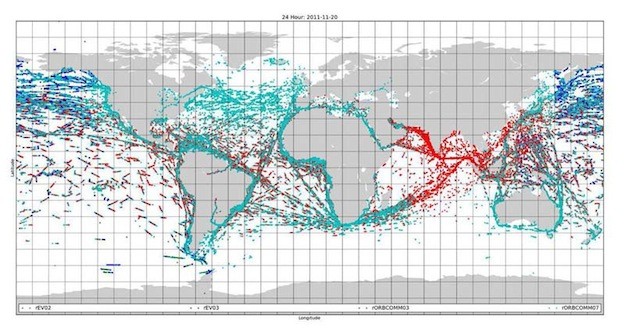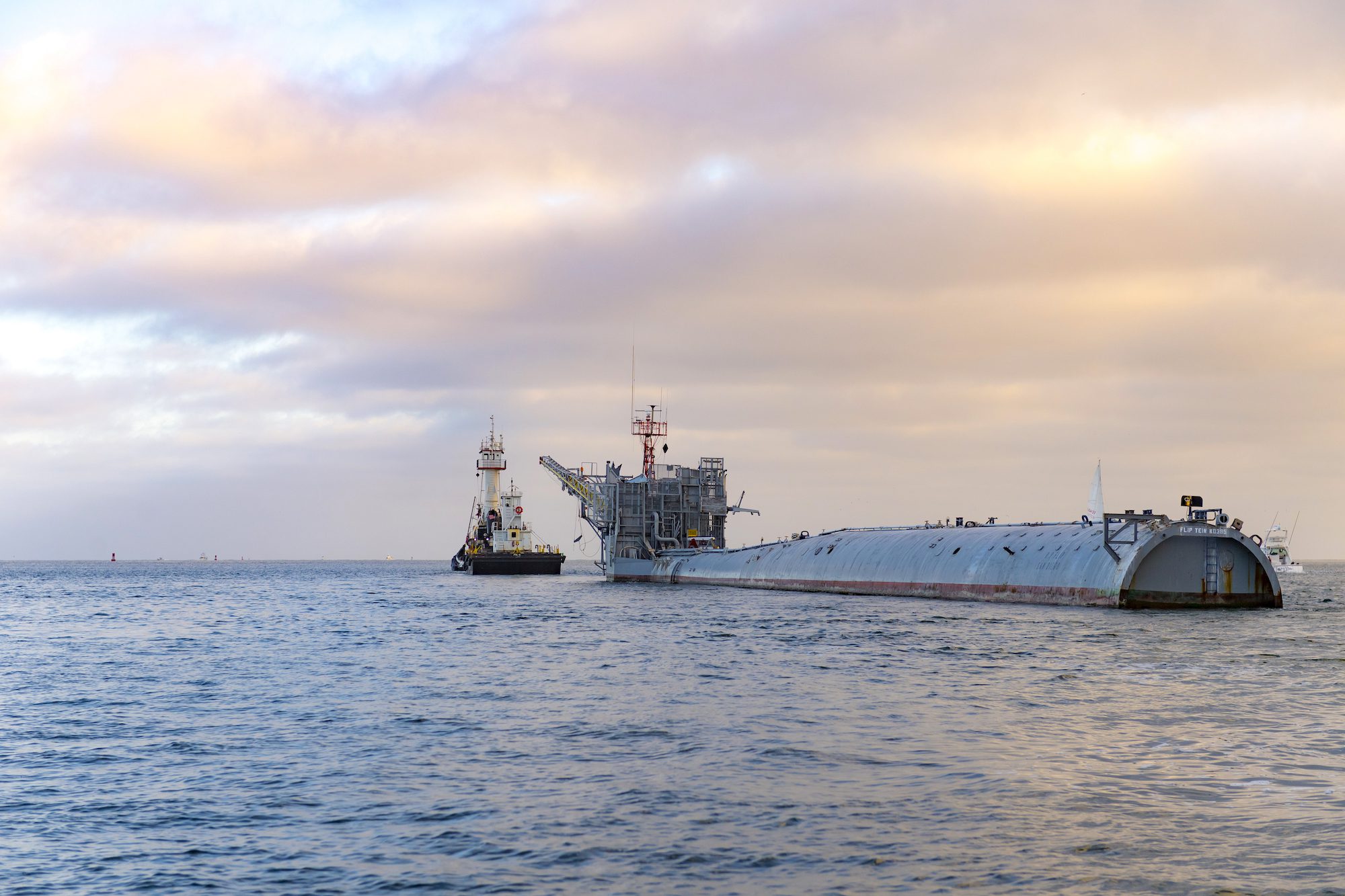By Cesar Morales
Michael Jones’ presentation at the 2012 Joint Warfighting Conference regarding Google’s new ship tracking technology has ruffled a few feathers within the Federal Government. Unfortunately the government’s responses are indicative of the DoD/DHS’s antiquated view of information exchange and thus completely miss the point.
In a widely reported comment from the presentation, Jones stated “It angers me as a citizen that I can easily do this [international ship tracking] and the entire DoD can’t do this.” “… The [National Reconnaissance Office] can’t do this. It’s crazy.” This comment has been met with responses that that range from incredulous to dismissive.
“To suggest that the U.S. Navy can’t track ships, or that Google can do it better – that’s just not correct,” said Eric Wertheim, an expert on global sea power and author of the Naval Institute Guide to Combat Fleets of the World. In the same Navy Times article, Guy Thomas, the U.S. Coast Guards Science and Technology adviser for Maritime Domain Awareness, stated that there is “No way” that Google can track ships better than government can.
On InformationDissemination.net, a widely read defense blog, one commenter, in response to the Jones presentation, went as far as to question Google’s loyalty to the country by making this information so readily available to the public.
Of course the Navy can track its ships better than Google. Yes, Automatic Identification System (AIS), the electronic transmitter that provides a ship’s course and speed, is only as good as the ship that turns it on. And yes, even when it is on, AIS does not always provide reliable ship tracking information.
But all this information is already public. Google simply figured out how to take public information and effectively integrate, share, and disseminate the AIS information to all those that are interested in it and want it.
Google is in the information integration and dissemination business- always looking for new ways to compile, analyze, and distribute information to the masses. The DoD/DHS, despite their many efforts, have fallen short in improving information sharing, particularly within their own agencies.
In fact, web-based applications and social media that enable fast movement of information are still viewed with skepticism by DoD and DHS. Currently the U.S. Coast Guard blocks the use of web-based applications such as Gmail and Facebook on its networks. If you are reading this article directly on gCaptain.com and are on the USCG network, the capability to provide a comment is blocked. Two-way communication is prohibited. In fact, if you work within USCG and would like to view Michael Jones’ speech about Google Ship Tracking, you cannot. Youtube.com is blocked.
Instead of focusing on who can track ships better, we should focus on two poignant remarks Jones makes about DoD/DHS’s approach to emerging web-based technologies. Jones advises the audience to “Be responsive to change…” and to “Take action” in order to keep up with new capabilities – he uses Google Ship Tracking as an example. These were the most significant DoD/DHS criticisms presented to the audience, and as such, these are the comments that should have received the most attention in Mr. Jones’ speech, not the back-and-forth of who tracks ships the best.
In these remarks Jones clearly levels a call to action to the DoD/DHS audience. He noted that time and time again the federal government retreats from emerging technologies, does not act, and thus loses out on capabilities.
In order to ‘Be responsive to change,” the DoD/DHS, particularly the Maritime Domain Awareness (MDA) leadership, must work to embrace emerging technologies, such as Google Ship Tracking, and figure out how they can be applied to existing gaps in maritime information sharing and exchange.
Furthermore, if the DoD/DHS MDA leadership wants to ‘act’ and effectively leverage these new web-based technologies, the place to start is the MDA Interagency Solutions Analysis (IASA) 1.0 Report. The IASA 1.0 Report is the result of a federal interagency analysis that identifies the national level capability gaps in MDA. It provides the starting point for how and where to apply new information sharing technologies. The IASA has been completed, paid for, and has been accepted at the highest levels of DoD and DHS. Currently, the IASA 1.0 Report is sitting on multiple DoD/DHS MDA leaders’ desks collecting dust. (Full disclosure- I was one of the designers and leaders of the IASA project.)
However, nothing happens on the federal level unless the effort has a budget. Thus, real action requires REAL funding. Information sharing efforts in DoD/DHS have continually failed due to ‘lack of funding’. The National MDA Coordination Office (NMCO), a national level federal office created solely to facilitate maritime information sharing between maritime federal and commercial stakeholders, was dissolved in February due to ‘lack of funding’. Federal MDA leaders need to commit real funds and include these efforts in their yearly budgets if information sharing is to be a priority.
Ultimately, Mr. Jones’ presentation is not about what Google can do and DoD/DHS cannot do. It is about what the Googles-of-the-world can do and help DoD/DHS do better. Let’s see if they ask for help or continue to be reluctant about the capabilities around them.
Cesar Morales is an independent Maritime Analyst, graduate of the US Naval Academy, and a former Surface Warfare Officer. He is a recognized subject matter expert in interagency Maritime Domain Awareness capabilities. (edit)

 Join The Club
Join The Club











